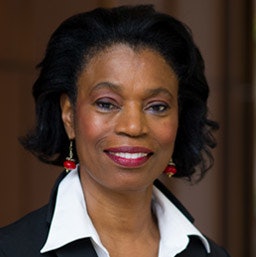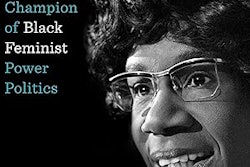Dr. Anita L. Allen spent about a year in corporate law before returning to higher education because, in her “heart and soul,” she was an academic.
Allen, currently the Henry R. Silverman Professor of Law and Professor of Philosophy at the University of Pennsylvania Penn Carey Law School, has had a storied career in the fields of law, bioethics, data protection, and privacy. Dr. Anita L. Allen
Dr. Anita L. Allen
“As a law professor, I’ve spent my career — which now has extended into 35th or 36th year — working on a couple different areas,” Allen says. “I would say that I work primarily in the area of data protection and privacy law. I’m a specialist on the philosophy and law of privacy and data protection. And I also work in the area of bioethics and the law, with a special focus on genetics, human reproduction, and mental health. And then, I’m also someone who works on issues around personal injury law [and] tort law.”
And for her contributions to these fields, Allen was named as one of two recipients of the 2022 Bioethics Founders’ Award from the research institute, The Hastings Center.
Allen is no stranger to the institute. She says she has been a fellow of The Hastings Center, head of The Hastings Center Council, and ex officio a member of The Hastings Center Board of Directors.
“I was extremely happy and maybe even surprised to receive the Founders' Award from The Hastings Center,” says Allen.
Allen was vice provost for faculty at Penn from 2013 to 2020. She says she also taught law at other universities, including Georgetown University Law Center and the University of Pittsburgh Law School. And prior to obtaining her law degree from Harvard Law, she was a philosophy professor at Carnegie-Mellon University.
Allen holds a Ph.D. from the University of Michigan in philosophy and sees herself as, first and foremost, a philosopher. She says that distinction adds to her contributions.
“Although I teach in a law school and am a lawyer ... I’m very much a philosopher and a social theorist,” Allen says. “So, I think what I bring to the table, any table at which I sit, is not just an interest in law, but also an interest in normative areas of philosophy, ethics and political philosophy, as well as an interest in women’s rights and more recently, in diversity in higher education.”
Allen says her interest in bioethics began in her earlier days as a scholar. She says she was interested in matters of privacy and that led her down a road to a plethora of privacy-related healthcare issues, such as surrogate parenting, abortion, birth control — and beyond bioethics — gay rights.
“There are privacy issues around choice,” Allen says. “The right to die is a privacy issue. The right to have an abortion is a privacy issue. The right to birth control is a privacy issue. The use of reproductive technologies and privacy issues around reproductive technologies, including those that relate and don’t relate to genetics, are privacy issues. So, my interest in privacy sort of drove me to identify, to be interested in a wealth of issues where privacy comes into play.”
In these fields, Allen’s work is well-known. She has been involved in organizations such as the National Advisory Council of Human Genome Research, the National Academy of Medicine, the American Law Institute, the American Philosophical Society, and the Obama-era Presidential Commission for the Study of Bioethical Issues.
“We worked on a range of bioethics issues, including synthetic biology, genetics, Ebola, human subject research in South America, children’s access to vaccine research and vaccine trials, a whole bunch of issues that were just cutting edge, compelling, and important,” she says of the presidential commission. “And I think that my Founders' Award reflects appreciation for my service on the bioethics commission, as well as the work that I did and have done for NIH and for the field generally.”
Today’s world still has its own health and privacy-related issues, says Allen, citing issues around women’s access to healthcare, and disproportionately high mortality rates of Black mothers and Black babies.
“I think that we need to have an ethical approach to our policies relating to maternity, pregnancy, and infant care,” Allen says. “America has a terrible record for developed countries on infant mortality and maternal health, and it is the case that Black women, among all American women, are most likely to have an adverse outcome from pregnancy.
“As bioethicists, we need to be probing questions around why that is and what we can do about it and how rights, like the right to use birth control and abortion, help women of color and especially Black women to control and to manage their pregnancies and family planning.”
Allen has authored several books throughout her career, including Unpopular Privacy: What Must We Hide?, The New Ethics: A Guided Tour of the 21st Century Moral Landscape; and Why Privacy Isn’t Everything: Feminist Reflections on Personal Accountability.
This article appeared in the December 8, 2022 edition of Diverse.


















